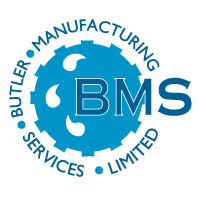Overcoming Development Delays: Temporary Sewage Treatment Solutions
The demand for housing and commercial developments continues to grow across Ireland and beyond. However, many projects face frustrating roadblocks due to overloaded public wastewater treatment plants. When the local municipal system cannot handle additional capacity, developments stall, leading to costly delays and uncertainty for investors, developers, and communities.
Fortunately, temporary sewage treatment systems are a practical and efficient solution. These modular, scalable solutions enable development progress while permanent infrastructure catches up. This article explores how temporary sewage treatment systems work, their benefits, and how they can keep your project on track.
The Challenge: Overloaded Municipal Wastewater Plants
Municipal wastewater infrastructure is struggling to keep up with rising demand. Many regions are experiencing sewage capacity constraints, impacting planning approvals and forcing developments into limbo. Developers often face the following issues:
Lengthy planning delays due to sewage capacity restrictions
Uncertainty in project timelines
Increased costs from stalled construction
Regulatory compliance challenges
Without viable alternatives, these obstacles can halt progress indefinitely.
The Solution: Temporary Sewage Treatment Systems
Temporary wastewater treatment plants offer a flexible and cost-effective way to manage sewage on-site until municipal upgrades are completed. These systems are designed to handle temporary or semi-permanent wastewater treatment needs, ensuring that developments can proceed while staying compliant with environmental regulations.
Key Benefits:
Fast Deployment – Installed quickly to avoid project delays
Regulatory Compliance – Meets local and EU wastewater treatment standards
Scalable & Modular – Adaptable to project size and sewage load
Cost-Effective – Eliminates the financial burden of delays
Eco-Friendly – Advanced technology ensures minimal environmental impact
How Do Temporary Sewage Treatment Systems Work?
These modular systems function similarly to permanent wastewater treatment plants but on a smaller scale. They treat sewage efficiently through a series of processes, including:
Primary Treatment – Removal of solids and debris
Biological Treatment – Breaking down organic matter using aerobic or anaerobic methods
Filtration & Disinfection – Ensuring the treated effluent meets environmental standards before discharge
These systems can be customised to suit specific development needs, making them ideal for temporary measures when municipal plants are at full capacity.
Real-World Applications & Case Studies
Developers across Ireland and internationally have successfully used temporary sewage treatment solutions to overcome infrastructure constraints. Some notable examples include:
Residential Developments – Housing projects moving forward despite municipal plant delays
Commercial & Industrial Sites – Businesses operating efficiently while awaiting permanent sewage connections
Tourism & Hospitality – Hotels, resorts, and event spaces managing seasonal wastewater fluctuations
By integrating temporary wastewater treatment, these projects avoided costly delays and maintained compliance with environmental regulations.
Join Our Webinar: Learn from Industry Experts
Want to explore how temporary sewage treatment solutions can keep your development on schedule? Join our upcoming free webinar with Tommy Butler, an expert in wastewater management at Butler Manufacturing Services (BMS).
Date: 11th April 2025
Time: 12pm
Location: Online
Learn more
Infrastructure constraints shouldn’t halt progress. Temporary sewage treatment solutions offer a practical way to bypass overloaded public wastewater systems, enabling developments to proceed smoothly. Developers can ensure project continuity, regulatory compliance, and environmental sustainability by investing in modular, scalable wastewater treatment.
For more insights and real-world case studies, register for our webinar and learn from industry leaders about how you can leverage these innovative solutions to keep your project moving forward.
